From New York to the IOR: Arianna Baggiolini's journey
Institutional Communication Service
Arianna Baggiolini, Assistant Professor at the Faculty of Biomedical Sciences of Università della Svizzera italiana (USI), heads one of the eight laboratories of the Institute for Oncology Research (IOR). The researcher shared the path that brought her back to Ticino from New York in an interview published by Cooperazione.
After her experience overseas, Arianna Baggiolini returned to Ticino and is now Laboratory Director at the IOR. What does it mean to run a laboratory? "It means collaborating with researchers with different experience levels, master's students still in training, PhD students facing their first scientific project, and postdoctoral students who are already researchers. Working in a team allows you to follow several projects at the same time, whereas as an individual researcher, this is not always feasible. It means having a vision, formulating important scientific questions to be answered, and carrying out essential researcher training work."
However, a laboratory director also has to deal with another essential task: the search for funding, which is needed to cover the enormous costs generated by a laboratory: "In biomedical research, the most significant factors are not the salaries, but rather the reagents we use, along with the various products, plastics, molecules, and other materials necessary for cell culture. This is especially true when working with pluripotent stem cells to create a human brain microenvironment", explained Arianna Baggiolini, who received a prestigious grant from the Swiss National Science Foundation in 2022: "I have received CHF 1.8 million from the Swiss National Science Foundation (SNSF) for five years, thanks to a Starting Grant for researchers, set up to make up for Switzerland's exclusion from European programmes, whose selection criteria were as strict as those in the European context precisely to ensure high-quality projects."
In general, most of the funds obtained by the IOR come from funding obtained by research groups: "We are very proud of this percentage because it shows the quality of our research and projects," commented the Laboratory Director.
Arianna Baggiolini returned to Ticino three years ago, after spending 11 years in Zurich and 6 in New York: "Returning to Ticino for work has been interesting, as many things have changed over the years. I have also changed: when I left for New York, I never thought I would return to conduct research here."
The Laboratory Director recalled how the IOR has grown over the last 14 years: "The IOR is a young institute; it was created in 2011. When I started studying biology in Zurich, it did not exist yet, and I did not think it could grow so strongly. After deciding to return to Switzerland, I applied for several positions. Among the research institutes, IOR was the one that then offered the best working conditions for the development of a new laboratory".
As Arianna Baggiolini explained, working in a young, small institute can be an opportunity: "Working in a large institution like MSKCC, where I previously worked in New York, can sometimes make it challenging to prioritise what's truly important for research. While a big institute provides a vast network of experts in various fields who are ready to offer advice, it often lacks efficiency. Even compared to my experience in Zurich, the IOR impressed me with its productivity and functionality. For example, some researchers are extremely well trained in some of the key technologies that make up the institute's facilities, infrastructure and services, and their contribution is crucial in advancing research quickly and dynamically."
So, what needs to be done to counter the brain drain from Ticino? "To dispel some prejudices, we need to increase awareness of how much the situation has evolved in recent years. Recently, there has been a noticeable change in Ticino, particularly in applications and interest in medical research. The region is gaining national and international recognition, especially for research into lymphomas, prostate cancer, and other solid tumours. The focus now is not so much on convincing young people to return, but rather on providing concrete opportunities," Arianna Baggiolini concluded.
The complete interview with Arianna Baggiolini is available at the following link (pp. 12-15). (Italian only)




